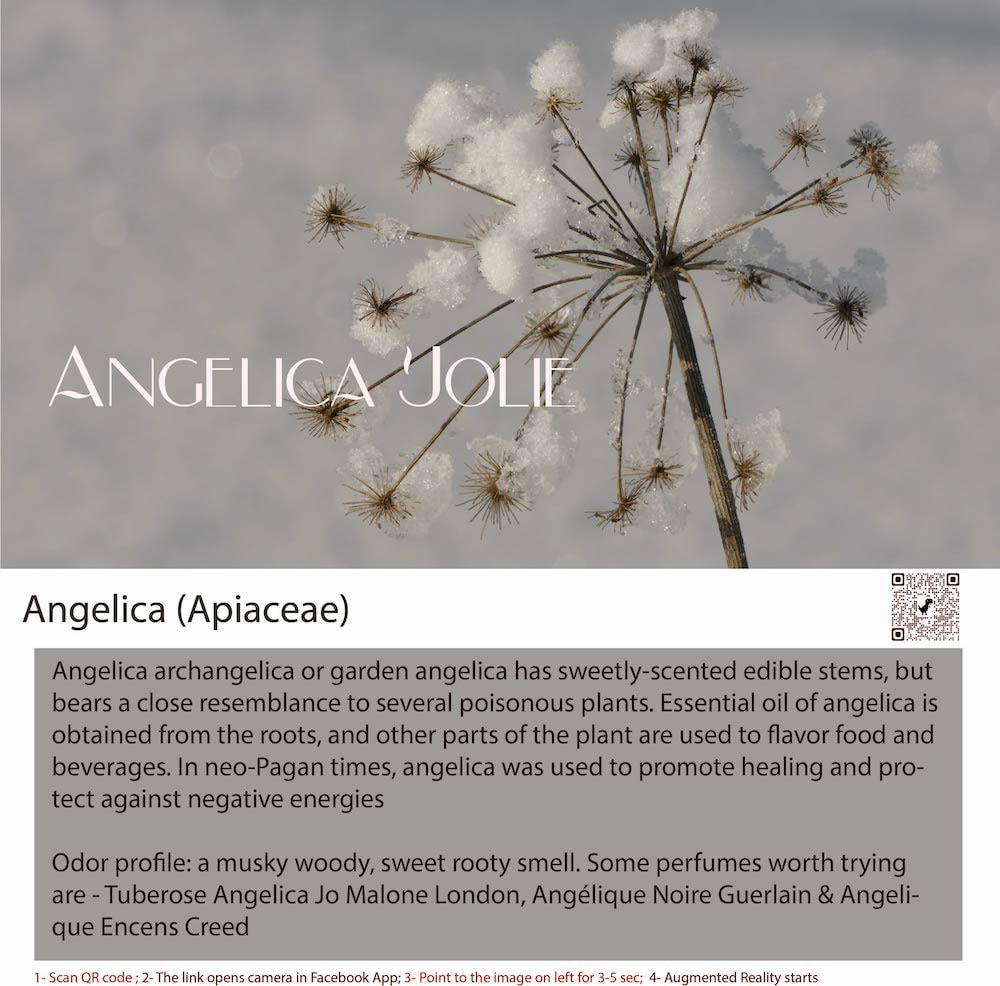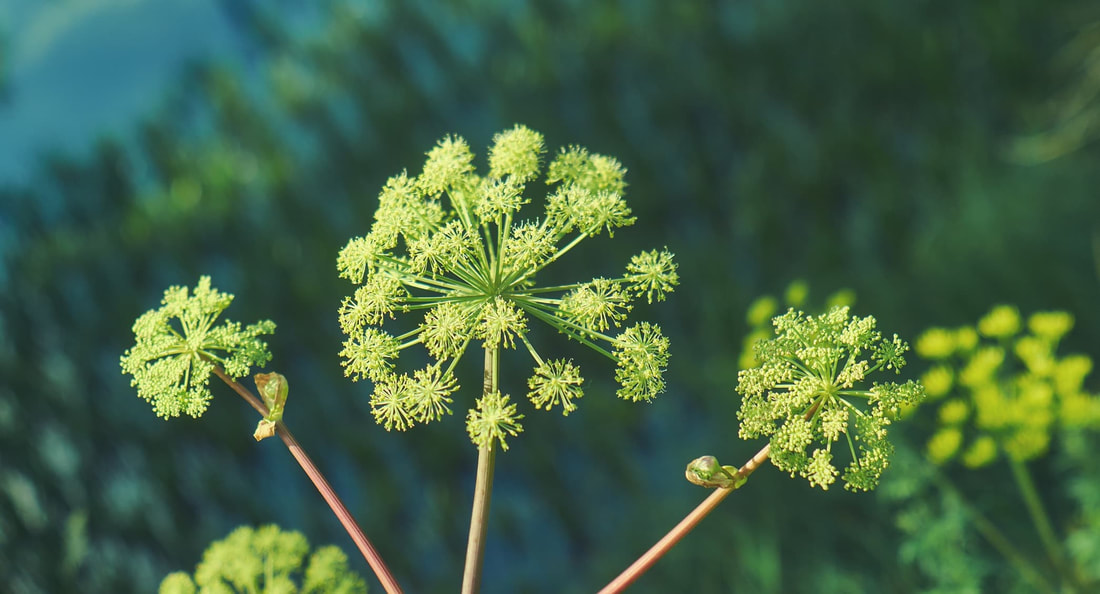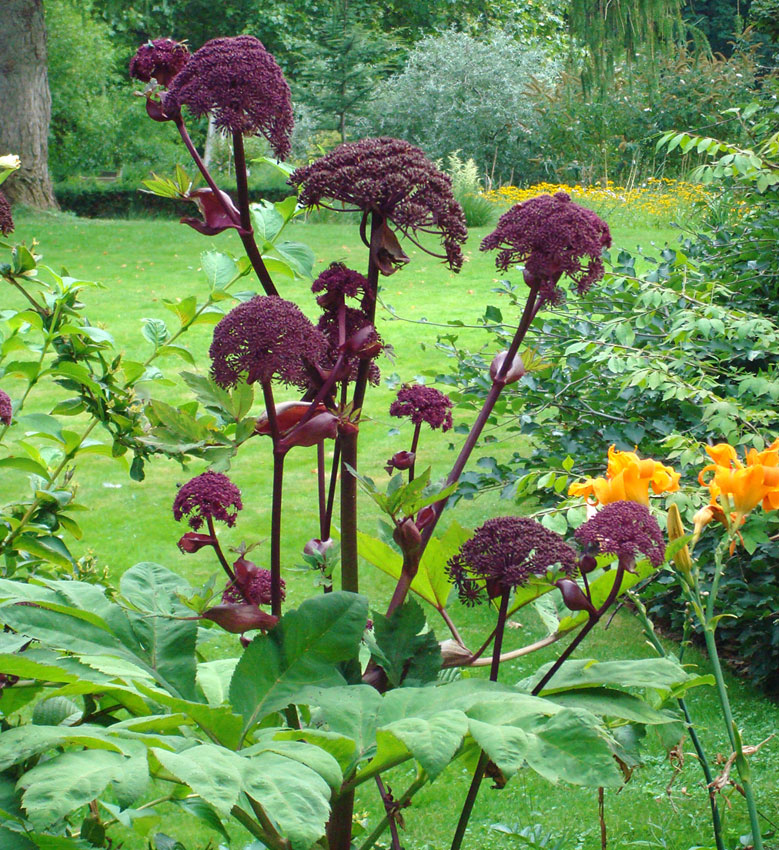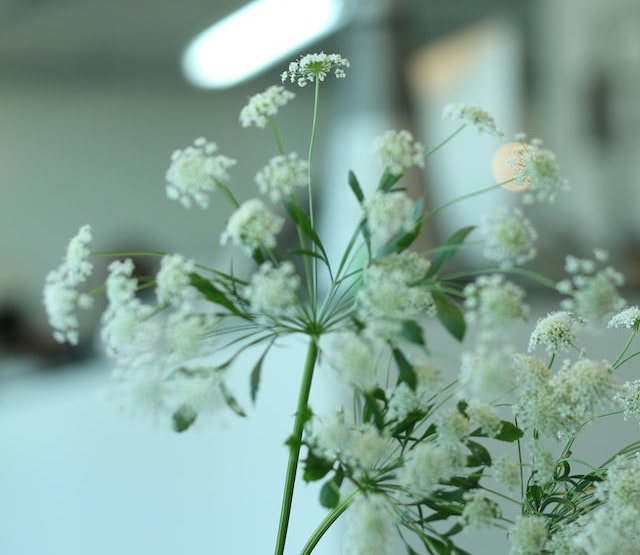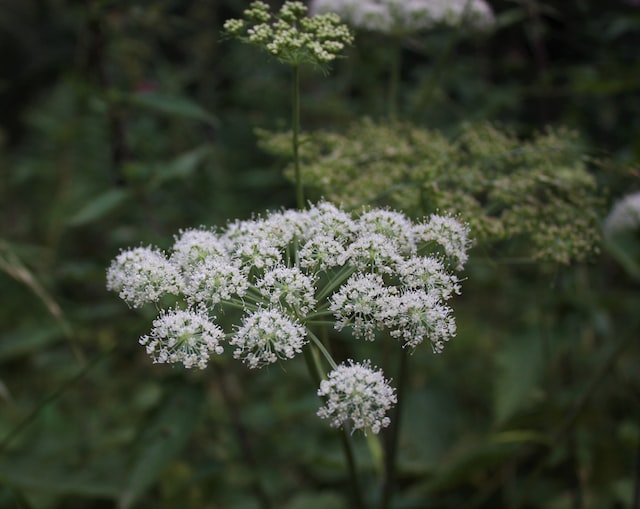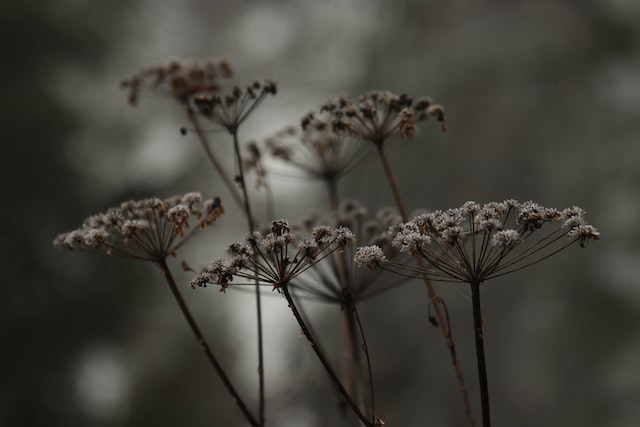Elegance in Every Drop: Angelica Women's Perfume
Angelica: A Fragrant Herb with Mystical Charm
Angelica, also known as "The Root of the Holy Ghost," is an aromatic herb that has captured the fascination of humans for centuries. With its enchanting fragrance, therapeutic properties, culinary uses, and historical significance, Angelica has found its way into perfumes, therapeutic oils, traditional medicinal systems, and culinary delights. In this comprehensive article, we will explore the captivating world of Angelica, uncovering its mesmerizing fragrance, therapeutic benefits, culinary applications, medicinal uses, historical importance, and fun crazy facts that make it a truly extraordinary and mystical herb.
Botanical Characteristics:
Angelica belongs to the Apiaceae family and is native to northern Europe and Asia. It is a tall perennial herb that can grow up to six feet in height. The plant has hollow, grooved stems, large green leaves, and produces clusters of small greenish-white flowers. However, it is the roots, seeds, and leaves of Angelica that are most valued for their aromatic and medicinal properties.
Fragrance and Perfumes:
The fragrance of Angelica is sweet, earthy, and herbaceous with a hint of musk. Its unique and captivating aroma has made it a popular choice in perfumery, where it is used as a middle note in various fragrances. The scent of Angelica is known for its grounding and calming effects, evoking a sense of tranquility and connection to nature. In perfumes, it adds a mystical charm and a touch of ancient allure.
Therapeutic Oils and Aromatherapy:
Angelica essential oil is derived from the roots of the plant and is used in aromatherapy for its therapeutic properties. The oil is believed to have calming and balancing effects on the mind and body, reducing stress and anxiety. In traditional medicinal systems, it is also used for its digestive and respiratory benefits. The fragrance of Angelica essential oil is known to promote feelings of inner peace and spiritual awareness, making it a popular choice for relaxation and meditation.
Culinary Delights:
In culinary practices, various parts of the Angelica plant are used to add a unique and distinct flavor to dishes. The stems and leaves are candied and used as a garnish for cakes, pastries, and desserts. The seeds are used as a spice, providing a warm and slightly bitter flavor to certain dishes. In Scandinavian cuisines, Angelica leaves are used to flavor aquavit, a traditional alcoholic beverage.
Medicinal Properties:
Angelica has a long history of medicinal use in various traditional systems, including Traditional Chinese Medicine and Ayurveda. It is believed to have digestive, diuretic, and expectorant properties, making it useful for treating digestive issues, urinary problems, and respiratory conditions. The herb is also used to promote menstrual health and to alleviate menstrual cramps. However, it is essential to consult with a qualified herbalist or healthcare professional before using Angelica for any medicinal purposes.
Historical Significance:
Angelica has a rich history dating back to ancient times. It was highly regarded in medieval Europe for its believed protective properties against the plague and evil spirits. It was also considered a sacred herb and was associated with various religious and spiritual beliefs. The name "Angelica" is said to have been derived from the belief that the herb had been revealed by an angel in a dream as a remedy for the plague.
Fun Crazy Facts:
Angelica, with its captivating fragrance, therapeutic benefits, culinary uses, and rich historical significance, remains a mystical and enchanting herb in the world of botanical wonders. From its role in perfumes and aromatherapy to its culinary and medicinal applications, Angelica continues to mesmerize and inspire people across different cultures and regions. However, it is crucial to approach Angelica with respect and caution, seeking professional advice before using it for medicinal purposes. Whether cherished for its magical properties, valued for its therapeutic benefits, or admired for its unique flavor, Angelica stands as a symbol of nature's charm and the timeless allure of the botanical world.
Angelica, also known as "The Root of the Holy Ghost," is an aromatic herb that has captured the fascination of humans for centuries. With its enchanting fragrance, therapeutic properties, culinary uses, and historical significance, Angelica has found its way into perfumes, therapeutic oils, traditional medicinal systems, and culinary delights. In this comprehensive article, we will explore the captivating world of Angelica, uncovering its mesmerizing fragrance, therapeutic benefits, culinary applications, medicinal uses, historical importance, and fun crazy facts that make it a truly extraordinary and mystical herb.
Botanical Characteristics:
Angelica belongs to the Apiaceae family and is native to northern Europe and Asia. It is a tall perennial herb that can grow up to six feet in height. The plant has hollow, grooved stems, large green leaves, and produces clusters of small greenish-white flowers. However, it is the roots, seeds, and leaves of Angelica that are most valued for their aromatic and medicinal properties.
Fragrance and Perfumes:
The fragrance of Angelica is sweet, earthy, and herbaceous with a hint of musk. Its unique and captivating aroma has made it a popular choice in perfumery, where it is used as a middle note in various fragrances. The scent of Angelica is known for its grounding and calming effects, evoking a sense of tranquility and connection to nature. In perfumes, it adds a mystical charm and a touch of ancient allure.
Therapeutic Oils and Aromatherapy:
Angelica essential oil is derived from the roots of the plant and is used in aromatherapy for its therapeutic properties. The oil is believed to have calming and balancing effects on the mind and body, reducing stress and anxiety. In traditional medicinal systems, it is also used for its digestive and respiratory benefits. The fragrance of Angelica essential oil is known to promote feelings of inner peace and spiritual awareness, making it a popular choice for relaxation and meditation.
Culinary Delights:
In culinary practices, various parts of the Angelica plant are used to add a unique and distinct flavor to dishes. The stems and leaves are candied and used as a garnish for cakes, pastries, and desserts. The seeds are used as a spice, providing a warm and slightly bitter flavor to certain dishes. In Scandinavian cuisines, Angelica leaves are used to flavor aquavit, a traditional alcoholic beverage.
Medicinal Properties:
Angelica has a long history of medicinal use in various traditional systems, including Traditional Chinese Medicine and Ayurveda. It is believed to have digestive, diuretic, and expectorant properties, making it useful for treating digestive issues, urinary problems, and respiratory conditions. The herb is also used to promote menstrual health and to alleviate menstrual cramps. However, it is essential to consult with a qualified herbalist or healthcare professional before using Angelica for any medicinal purposes.
Historical Significance:
Angelica has a rich history dating back to ancient times. It was highly regarded in medieval Europe for its believed protective properties against the plague and evil spirits. It was also considered a sacred herb and was associated with various religious and spiritual beliefs. The name "Angelica" is said to have been derived from the belief that the herb had been revealed by an angel in a dream as a remedy for the plague.
Fun Crazy Facts:
- Angelic Connection: The name "Angelica" is believed to have been given to the herb because it was believed to have been sent from heaven by an angel during a plague outbreak in Europe.
- The Holy Ghost Plant: In medieval Europe, Angelica was known as "The Root of the Holy Ghost" due to its purported healing powers against various ailments and evil spirits.
- Viking Herb: In Viking culture, Angelica was believed to have protective and magical properties. It was used in rituals and ceremonies to ward off evil and bring good luck.
Angelica, with its captivating fragrance, therapeutic benefits, culinary uses, and rich historical significance, remains a mystical and enchanting herb in the world of botanical wonders. From its role in perfumes and aromatherapy to its culinary and medicinal applications, Angelica continues to mesmerize and inspire people across different cultures and regions. However, it is crucial to approach Angelica with respect and caution, seeking professional advice before using it for medicinal purposes. Whether cherished for its magical properties, valued for its therapeutic benefits, or admired for its unique flavor, Angelica stands as a symbol of nature's charm and the timeless allure of the botanical world.
To experience augmented reality, please open the Facebook-app using QR code and point to the image below
Experience the Essence of Femininity with Angelica Perfume
Angelica is a genus of flowering plants in the carrot family (Apiaceae). The plants are native to temperate and subarctic regions of the Northern Hemisphere, and are grown in many places for their attractive flowers and decorative leaves. Some species of angelica are also grown for their medicinal properties.
The angelica plant is tall, with a thick stem and large leaves. The flowers are small and white or greenish-white, and are produced in large umbrella-shaped clusters. Angelica is often used in herbal medicine, and is believed to have anti-inflammatory, diuretic, and tonic properties. It is also used as a flavoring agent in food and drink.
The angelica plant is tall, with a thick stem and large leaves. The flowers are small and white or greenish-white, and are produced in large umbrella-shaped clusters. Angelica is often used in herbal medicine, and is believed to have anti-inflammatory, diuretic, and tonic properties. It is also used as a flavoring agent in food and drink.
The scent of angelica flowers is sweet and slightly musky. Some people describe it as having a woody or earthy aroma. The plants are often grown for their attractive fragrance, which can be enjoyed in gardens and in arrangements of fresh flowers. The essential oils extracted from angelica flowers are used in perfumes and scented products, and are said to have a calming effect on the mind and body. In herbal medicine, angelica is sometimes used as an aromatherapy oil to help relieve stress and promote relaxation.
Indulge in the Delicate Aromas of Angelica
Angelica essential oil is extracted from the seeds, leaves, and roots of the angelica plant (Angelica archangelica). It is a pale yellow to amber-colored oil with a sweet, woody aroma. Angelica essential oil is used in aromatherapy and is believed to have a number of therapeutic properties, including being an anti-inflammatory, diuretic, expectorant, and tonic. It is also said to have a calming effect on the mind and body and to help relieve stress and anxiety.
In traditional medicine, angelica essential oil has been used to treat a variety of conditions, including digestive problems, respiratory disorders, and skin conditions. It is also used as a flavoring agent in food and drink. It is important to note that angelica essential oil should be used with caution, as it can be toxic if ingested in large amounts. It should also be avoided by pregnant women.
In traditional medicine, angelica essential oil has been used to treat a variety of conditions, including digestive problems, respiratory disorders, and skin conditions. It is also used as a flavoring agent in food and drink. It is important to note that angelica essential oil should be used with caution, as it can be toxic if ingested in large amounts. It should also be avoided by pregnant women.
Captivating Notes of Angelica Floral Perfume
Some potential benefits of angelica include:
- Anti-inflammatory: Angelica is believed to have anti-inflammatory properties, which may help reduce swelling and inflammation in the body.
- Diuretic: Angelica is a natural diuretic, which means it can help increase urine production and flush excess water and toxins out of the body.
- Expectorant: Angelica may help break up and clear mucus from the respiratory tract, making it easier to breathe.
- Tonic: Angelica is believed to have tonic properties, which means it can help strengthen and tone the body's systems and organs.
- Relaxation: The sweet, musky scent of angelica is thought to have a calming effect on the mind and body, and may help reduce stress and anxiety.
Experience True Femininity with Angelica Perfume
Angelica is a genus of flowering plants in the family Apiaceae. It is native to temperate regions of Europe, Asia, and North America. The plants are tall and have white or greenish-white flowers and large, finely divided leaves. The root and seeds of some species of angelica are used as a spice, and the leaves and stems are used to make a variety of medicinal preparations.
The use of angelica as a medicinal plant dates back to at least the 1st century AD, when it was used by the ancient Greeks and Romans to treat a variety of ailments. In traditional herbal medicine, angelica was believed to have many curative properties and was used to treat a wide range of conditions, including digestive issues, respiratory problems, and skin conditions. In addition to its medicinal uses, angelica has also been used as a flavoring agent in food and drink, and the roots and seeds are used to make liqueurs and other beverages.
The use of angelica as a medicinal plant dates back to at least the 1st century AD, when it was used by the ancient Greeks and Romans to treat a variety of ailments. In traditional herbal medicine, angelica was believed to have many curative properties and was used to treat a wide range of conditions, including digestive issues, respiratory problems, and skin conditions. In addition to its medicinal uses, angelica has also been used as a flavoring agent in food and drink, and the roots and seeds are used to make liqueurs and other beverages.
Crafted for Elegance: Angelica Women's Fragrance
There are a few different myths and legends that involve the plant known as angelica. Here are a couple of examples:
- In Norse mythology, the angelica plant is said to have sprung from the tears of the angel Gabriel. According to the legend, the angel Gabriel was crying over the fate of humankind, and the tears that he shed turned into the angelica plant. This legend is the source of the plant's scientific name, Angelica.
- In European folklore, angelica was believed to have magical powers and was used to protect against evil spirits and sorcery. It was also thought to bring good luck and to have the power to ward off diseases. In some traditions, angelica was used in love spells and was believed to bring happiness and harmony to relationships.
- In Chinese mythology, angelica is associated with the legend of the "Fairy of the Herbs." According to the legend, a fairy descended to earth and taught humans how to use medicinal herbs to heal their ailments. Angelica was one of the herbs that the fairy is said to have revealed to humans, and it was believed to have special powers to protect against evil and to bring good fortune.
Join Scentopia, Sentosa's latest tourist attraction wonderful orchid scent crafting, fragrance tour, bridal shower or corporate team building which includes perfume making onsite and offsite, beach activities and more. We also serve primary school learning journey, secondary students and pupil on industrial excursions. Know more about our orchids perfume bar or therapeutic orchid scents and other wellness aromas. Conatct Perfume workshop or book a scent crafting session here.

